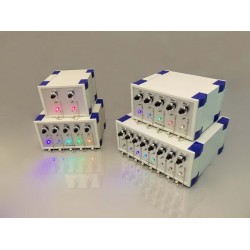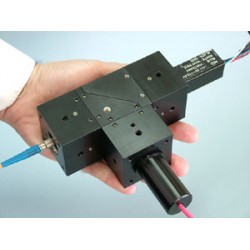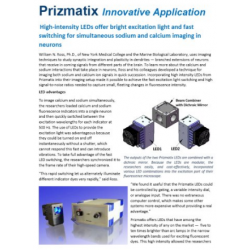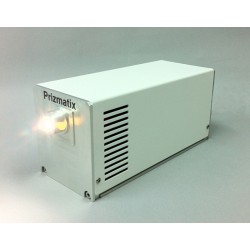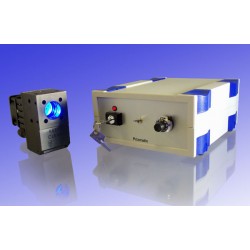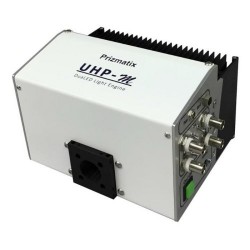TITAN CW BROADLY TUNABLE LASER
-500x500w.jpg)
- Stock: Contact us for details
- Click here to: Contact us
- Model: Prizmatix Microscopy LED Light Sources
Broadly Tunable Laser in the Mid-IR
TITAN CW BROADLY TUNABLE LASER
The extraordinary Titan is the pioneer commercial fully-automated mid-infrared continuous-wave optical parametric oscillator (CW OPO). Introduced to the market in 2018, Titan delivers continuously tunable output wavelengths in the mid-IR, across 1435 – 4138 nm (6969-2416 cm-1)*. The full spectral range is achieved with a single set of optics without the need to exchange any module.
Radiantis´ unique expertise in frequency converted lasers has enabled the exceptional design of the Titan OPO family. As a sealed and fully-automated system, with excellent TEM00 beam quality (M2 < 1.3) and beam pointing stability ( <80 μrad), Titan delivers high CW output power ( >3 W at the peak of the tuning range) with a linewidth <100 MHz in the signal range.
Hands-free operation is ensured thanks to the all-digital control electronics and user control software which can be accessed through the PC GUI interface installed on a dedicated laptop delivered with the OPO. Titan can also be controlled via remote commands.
Titan integrates 4 key modules: 1) the DFB fiber laser and amplifier unit, 2) the DFB fiber laser control unit (integrated on a rack), 3) the OPO optical head (to be located on an optical table), 4) the OPO all-digital control electronics unit (integrated on a rack)

- Wide wavelength tuning across 1435 – 4138 nm (6969 – 2416 cm-1)*
- High output power with >3 W at the peak of the range
- Excellent beam pointing stability with wavelength
- TEM00 spatial profile
- Hands-free operation with dedicated control software. Control drivers available
- Sealed, compact, and virtually maintenance-free
- Spectral monitoring with integrated spectromete

The broad wavelength range, narrow linewidth, and fully-automated tunability across the mid-IR will enable cutting-edge research in diverse areas such as high-resolution spectroscopy and microscopy for biotechnology, fundamental physics and chemistry, as well as on device and material characterisation and quantum technologies.





